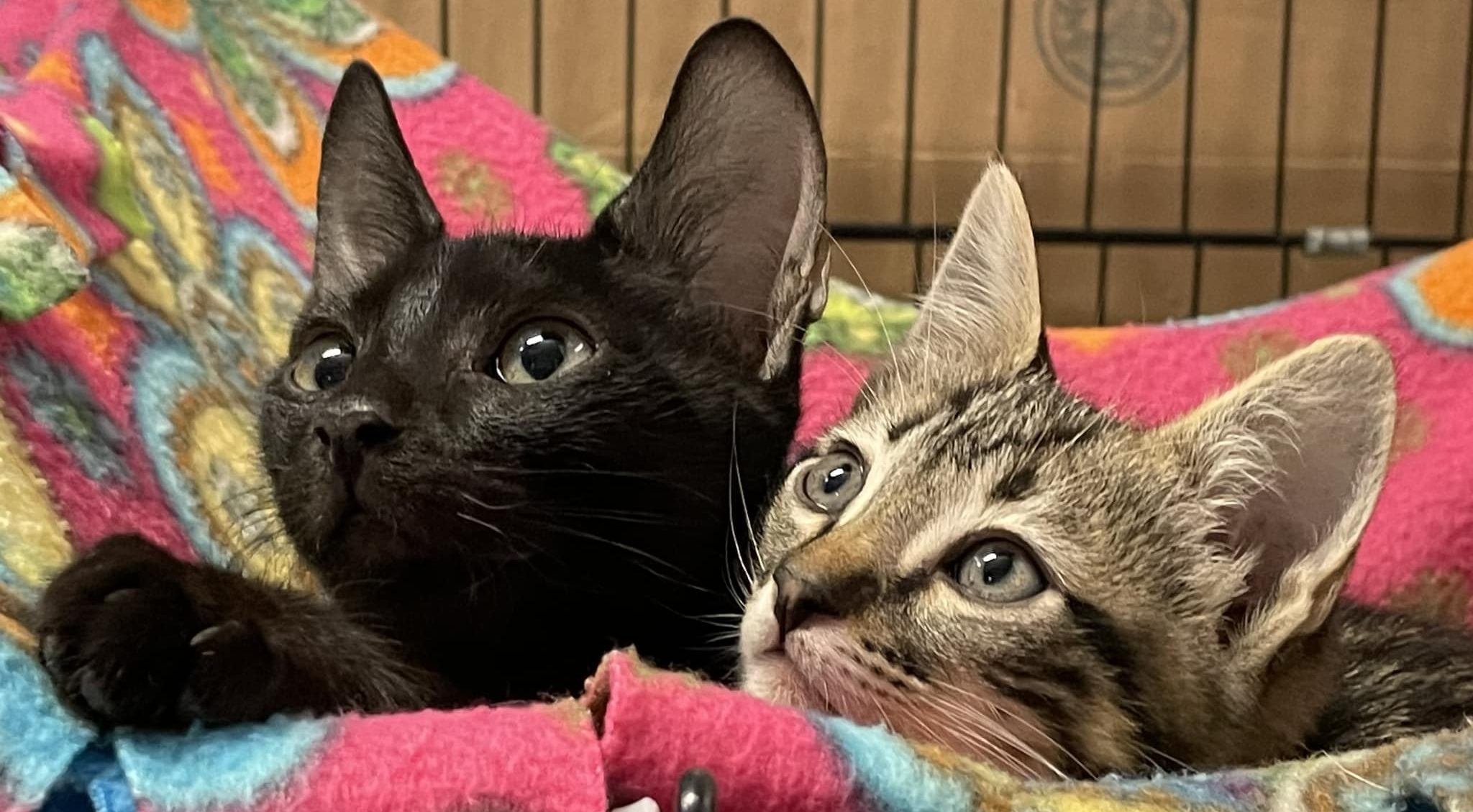1. All kittens are born with what eye color?
All kittens are born with blue eyes! By week 6 or 7, their eyes start changing color.
2. What’s the average weight of a newborn kitten?
Newborn kittens usually weigh about 3.5 ounces, depending on their breed and the litter’s size. A healthy kitten should gain at least 10 grams per day.
3. At what age does a kitten learn to walk?
Most kittens start walking around 3 weeks of age, but take a little longer to gain their coordination. You can be comfortable saying a kitten who is walking pretty well and playing is at least 4 weeks of age.
4. How many hours does a healthy kitten sleep?
A new born kitten’s daily routine is made up of sleeping 90 percent of the time, that is almost 22 hours! As kittens mature beyond the new born stage, they will sleep less; but even at six months of age they still manage to spend about 16 to 20 hours a day dozing.
5. How often does a newborn kitten need to be fed?
Orphaned kittens should be fed on a strict schedule, preferably every 3 hours. Kittens up to two weeks old can generally consume their daily intake in 4-5 meals per day. Small breed kittens should be limited to 10-15mL per feeding during the first week of life in order to prevent diarrhea.
6. Newborn kittens purr
True! From the day they’re born, kittens love to make noise. Kittens meow, squeal and purr throughout their lives, and each of these sounds means something slightly different. The long, drawn-out kitten squeal means that your little one feels lost or lonely. A series of shorter cries typically indicates that your kittens are hungry and looking for a meal. Purring can indicate a number of things, including a happy kitten, a scared kitten or a kitten in pain.
7. How many teeth do kittens have?
As in humans, cats have two sets of teeth. As kittens they have 26 deciduous teeth, also known as primary, baby, or milk teeth. As adult cats they have 30 permanent teeth.
8. Kittens are born blind and deaf
True! Newborn kitten’s eyes are sealed shut and functionally useless. Like their coatless bodies and closed ears, a kitten’s eyes are not fully developed at birth. The only senses that work straight out of the gate are those of touch and smell. With mother’s assistance and protection, a kitten is able to eat and sleep. These activities provide the fuel and raw materials for growth across the board, including preparing the eyes for sight.
9. At what age should kittens be fully weaned?
The weaning process usually starts at around 5 weeks of age, the process will continue for about another 3 to 4 weeks until the kittens are fully weaned between 8 and 9 weeks of age.
10. One litter of kittens can have multiple fathers
True! A female kitty can breed numerous times with different males when she’s in heat. Once the eggs are released from her ovaries, a process triggered during mating, the male’s little swimmers get trapped in the female’s reproductive tract and can fertilize the eggs, resulting in the potential for multiple donors. The female may release several eggs, which can survive for up to 24 hours, thus widening the window for multiple fertilizations from different sperm donors.
11. What happens to kitten pee and poop before they start using the litter box?
When kittens are first born, the mother will lick the kitten to stimulate it to start the elimination of urine and poop. In the process, the mom will ingest these items.
12. At what age can kittens have their own kittens?
Cats reach sexual maturity (and thus are able to breed) from around 4 months of age. Which is why kittens should be neutered/spayed before they reach this age to prevent unwanted pregnancies.
13. When does a kitten become an adult cat?
While their growth may slow down after 6 months, the development and growth phase will usually continue until the cat is roughly one year old, which is why many veterinarians treat the 12-month point as the age when a kitten becomes an adult.
14. Cats are the best animal in the entire universe
True! If you have a feline furchild, you know this is true. If you don’t, you are missing out! Do your research, adopt a cat, and thank us later.






Greetings! Very useful advice within this post! It’s the little changes that make the most significant
changes. Thanks a lot for sharing!